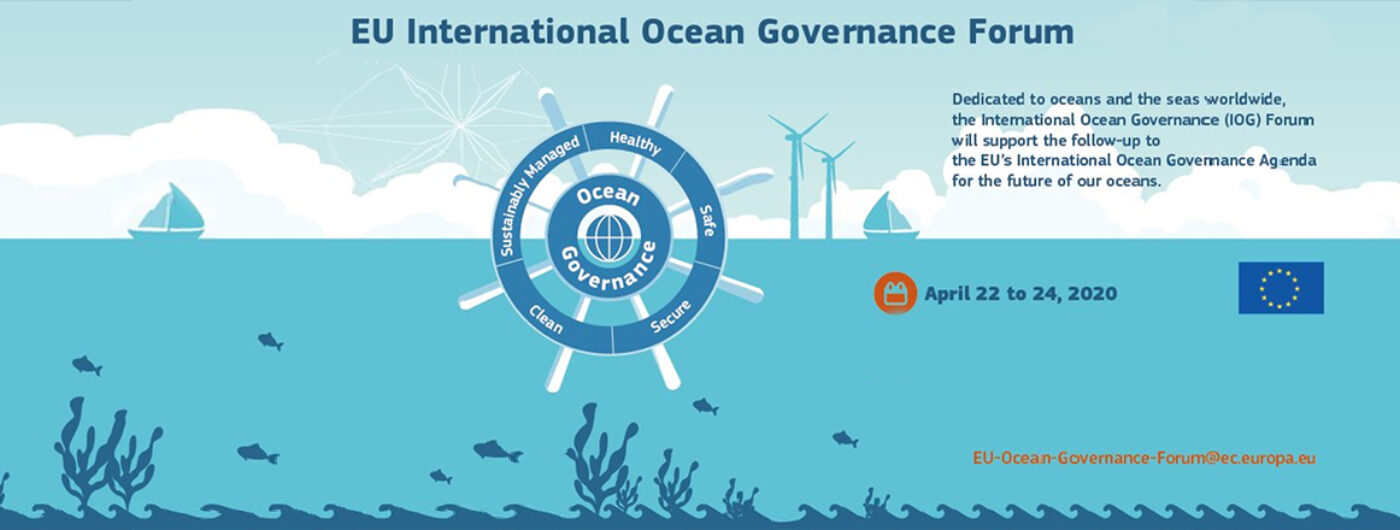
Reducing pressure on oceans and seas and creating the conditions for a sustainable blue economy
The UfM participated in the EU International Ocean Governance Forum, launched by the European Commission in association with the European External Action Service to provide a platform for dialogue on ocean challenges and governance solutions
23-24 April 2020. The International Ocean Governance (IOG) Forum took place online on 23-24 of April to further strengthen international ocean governance for the sustainable use of oceans and seas and the shift to the blue economy. With the participation of the UfM Deputy Secretary General, Isidro González Afonso and UfM Head of Sector, Alessandra Sensi, the core of the debate was the degradation of marine ecosystems and the related economic and social impacts of activities linked to the seas, like the supply of food and tourism.
Key speakers such as the European Commissioner for Environment, Oceans and Fisheries, Virginijus Sinkevičius and the UN Special Envoy for the Oceans, Peter Thomson, highlighted 5 key challenges for a sustainable blue economy. The first action needed is tackling pollution to achieve the healthy status of the ocean and restore marine ecosystems, since the marine environment continues to deteriorate, regardless of the efforts invested in reducing pollution. In this sense, plastic pollution is a main challenge to be addressed urgently, since between 8 and 13 million tonnes of plastic enter the ocean each year. With plastic production expected to double over the next 20 years, other approaches like “production to consumption” value chain initiatives and market shift towards ‘greener’ products need to be considered, according to the Forum recommendations.
The International Ocean Governance Forum also targeted the need to mitigate the effects of climate change. Communities were advised to engage in resilient short-term and long-term initiatives since the increase in greenhouse gas emissions has already resulted in increased ocean acidity, decline on oxygen levels, warming waters, rising sea-level and more frequent and intense extreme events in ocean currents. These changes have a direct impact on the sustainable management of the ocean food resources. Fishing activities, traditionally done in coastal areas, have expanded now into the high seas and more than 30% of global fish stocks are considered overfished. This leads to an altered ecosystem and food chain, impacting local coastal populations who are dependent on these ecosystems. Finally, the Forum emphasized the urgency to create the right conditions for a sustainable blue economy and effective ocean governance, as many activities that are considered part of the blue economy (such as fisheries, aquaculture, shipbuilding and tourism as well as emerging industries including ocean energy and biotechnology) still have significant direct or indirect impacts on the health of sea ecosystems.
In line with the ongoing exchanges between the 43 UfM Member States to prepare the UfM Ministerial Meetings on Blue Economy and on Environment and Climate Change, the IOG also underlined that, with the expected future growth in the blue economy, it is essential to consider the use of different governance tools, including Marine Spatial Planning (MSP) and Integrated Coastal Zone Management (ICZM) and nature-based solutions (e.g. networks of Marine Protected Areas), among others.

